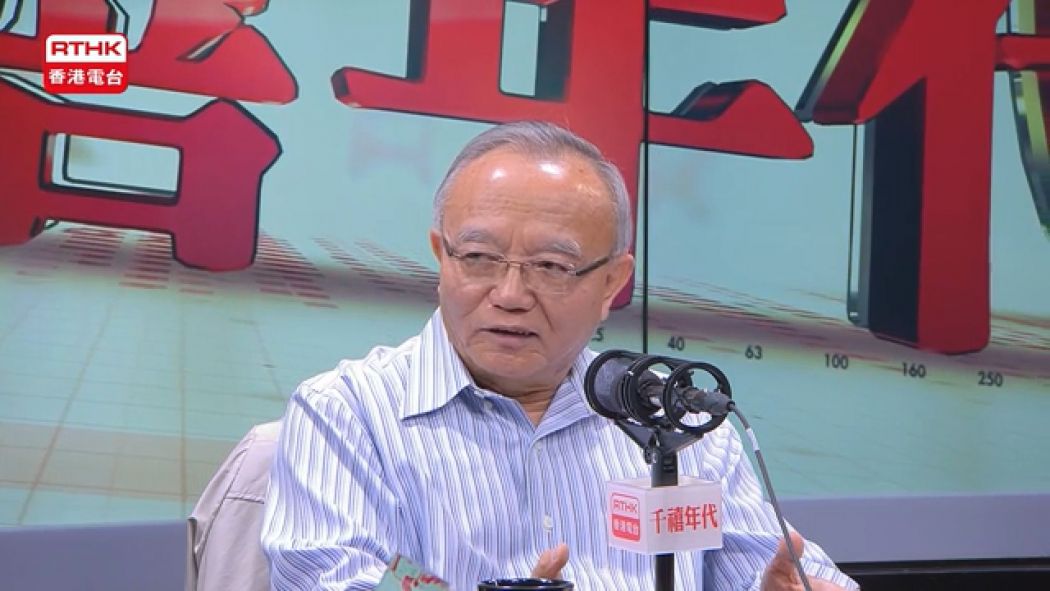Democrat James To has criticised a former government adviser for suggesting that Hong Kong’s pan-democrats will not be able to find common ground on universal suffrage with Beijing. He said that the comments may deter the chief executive and newly-elected members of Beijing’s top decision-making body from restarting political reform.
Lau Siu-kai, vice-president of the semi-official Beijing think tank the Chinese Association of Hong Kong and Macao Studies, was speaking about universal suffrage during an RTHK programme on Thursday.

He said that, from the Central government’s perspective, Hong Kong’s universal suffrage problem had already been solved, as any reforms must follow the “831 decision.” The National People’s Congress 2014 White Paper stated that leadership candidates must first be vetted before they face the public.
“How do you understand universal suffrage? Is it limited to an approach to universal suffrage that has to meet certain western values? Or does it… have to meet the goals of the Basic Law and One Country Two Systems? When it comes to this point, I don’t think everyone will be able to find common ground in 20 years.”
To slammed Lau for presenting the impossibility of Hong Kong coming to a census on universal suffrage as an established truth. He said that it was too early to draw conclusions about Beijing officials’ policies on Hong Kong, as the central government had just appointed the Politburo Standing Committee, and the member in charge of Hong Kong and Macau affairs has not been announced yet.

“Is Lau – or those friends at the Chinese Association of Hong Kong and Macau Studies – trying to present [the issue] as a fait accompli? [Saying we] shouldn’t do it, shouldn’t change, shouldn’t do universal suffrage – or even sending a message or pressuring Carrie Lam, saying: ‘don’t reinitiate political reform?’”
He said Lau was being overly negative, and questioned whether he was trying to recommend his own opinions to the central government as vice-president of the think tank.
To added that the central government used to view the implementation of universal suffrage in Hong Kong as a certainty, as it could prove the success of One Country Two Systems. He said he is optimistic about universal suffrage, and hopes that officials in Beijing will listen to the desires of Hong Kong people, and find an effective way to implement universal suffrage.
